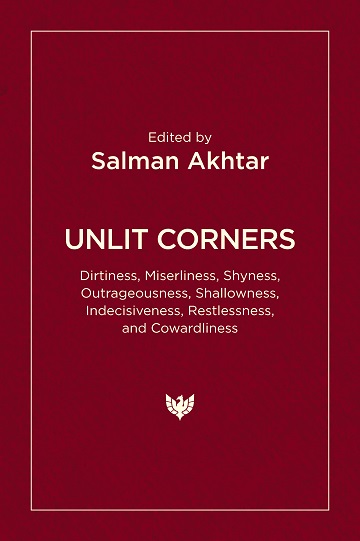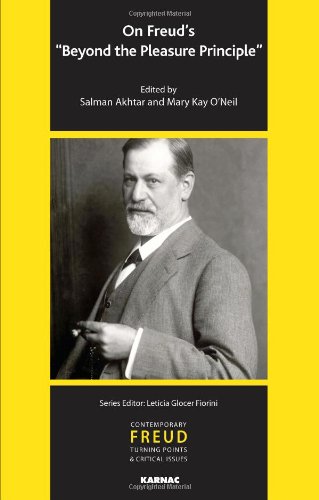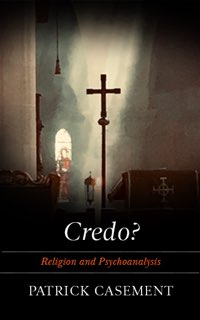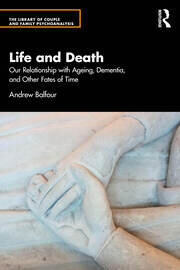On Freud's "The Future of an Illusion"
Part of IPA - Contemporary Freud Turning Points and Critical Issues series - more in this series

Book Details
- Publisher : Routledge
- Published : 2009
- Cover : Paperback
- Pages : 318
- Category :
Psychoanalysis - Catalogue No : 27773
- ISBN 13 : 9781855756274
- ISBN 10 : 1855756277
There are currently no reviews
Be the first to review
"The Future of an Illusion" reveals Freud's reflections about religion as well as his hope that in the future science will go beyond religion, and reason will replace faith in God. The discussion with an imaginary critic revealed his internal debate, mirroring the debate about this subject in the outside world. However, it also enlightens his way of thinking: deconstructing and constructing at the same time. This volume considers Freudian ideas and their implications today, while focusing on the contradictions and gaps in Freud's proposals. The question of the coexistence between religion and psychoanalysis, as well as the place of ideals, belief, illusion, and imagination - and, no less important, the benevolent and destructive aspects of religion - also come into play.
Reviews and Endorsements
'This is a most welcome, and overdue, rich contribution to what Freud dared to address in response to Romain Rolland's question to him, that he, the disbeliever, explain the nature of the widely experienced "oceanic feeling". The contributors to this volume accept fairly readily Freud's cogent psychoanalytic explanation that the origins of religion lie in what today we would explain as the symbiotic (therefore, 'oceanic') experience of earliest childhood and in the face of existential anxiety to wish to return to a state of "being one with the beyond". But in complement, the contributors variably take Freud's view of religion as the neurosis of society to task. This is strong scholarship, admirable thinking, some even brilliant, meaningful reading, and re-opens of the question, "Must one choose between psychoanalysis and religion, or can one be psychically healthy and engage in both?"'
- Henri Parens, M.D.
'Sigmund Freud, by the very act of making God a subject of metapsychological deconstruction, took a resolutely atheistic position. His pupils and followers also adhered "religiously" to the arguments and declarations he made in "The Future of Illusion" and later in "Civilization and Its Discontents". Scientific positivism of the early twentieth century provided a receptive crucible for Freud's debunking of God. He had given voice to what was brewing in the minds of the Western intelligentsia. The unspeakable atrocities that soon followed in the name of religious nationalism in Europe "confirmed" that ethnocentrism and its conceptual twin, religious belief, were dangerous commodities.
They led to intoxication with in-group superiority and laid the groundwork for oppression of "others", and even cruelty and genocide. Early European psychoanalysts, themselves the victims of prejudice and violence, wholeheartedly followed the ray of hope offered by Freud's declaration that religion was a hoax and science will sooner or later assure that rationality prevails in the conduct of interpersonal and communal affairs. At that point atheism and psychoanalysis became inseparable.'
- Salman Akhtar
About the Editor(s)
Mary Kay O'Neil, a Supervising and Training Analyst of the Canadian Institute of Psychoanalysis, is in private practice in Montreal, Quebec. Currently, she is Associate Director of the Canadian Institute of Psychoanalysis (Quebec, English). She completed her PhD at the University of Toronto, where she was on the staff at the University of Toronto Psychiatric Service and Assistant Professor in the Department of Psychiatry. She is author of The Unsung Psychoanalyst: The Quiet Influence of Ruth Easser and co-editor of Confidentiality: Ethical Perspectives and Clinical Dilemmas. Her research and publications include articles in areas such as depression and young adult development, emotional needs of sole-support mothers and their children, post-analytic contact between analyst and analysand, and psychoanalytic ethics. She has served on psychoanalytic ethics committees at local, national, and international levels; as a reviewer for JAPA, the Canadian Journal of Psychoanalysis; and, currently, on the North American Editorial Board of the International Journal of Psychoanalysis.
More titles by Mary Kay O'Neil
Salman Akhtar, MD, is professor of psychiatry at Jefferson Medical College and a training and supervising analyst at the Psychoanalytic Center of Philadelphia. He has served on the editorial boards of the International Journal of Psychoanalysis and the Journal of the American Psychoanalytic Association. His more than 450 publications include twenty-three solo authored books – Broken Structures (1992), Quest for Answers (1995), Inner Torment (1999), Immigration and Identity (1999), New Clinical Realms (2003), Objects of Our Desire (2005), Regarding Others (2007), Turning Points in Dynamic Psychotherapy (2009), The Damaged Core (2009), Comprehensive Dictionary of Psychoanalysis (2009), Immigration and Acculturation (2011), Matters of Life and Death (2011), Psychoanalytic Listening (2013), Good Stuff (2013), Sources of Suffering (2014), No Holds Barred (2016), A Web of Sorrow (2017), Mind, Culture, and Global Unrest (2018), Silent Virtues (2019), Tales of Transformation (2022), In Leaps and Bounds (2022), and In Short (2024) – as well as sixty-nine edited or coedited volumes in psychiatry and psychoanalysis. Dr. Akhtar has delivered many prestigious addresses and lectures including, most significantly, the inaugural address at the first IPA-Asia Congress in Beijing, China (2010). Dr. Akhtar is the recipient of the Journal of the American Psychoanalytic Association’s Best Paper of the Year Award (1995), the Margaret Mahler Literature Prize (1996), the American Society of Psychoanalytic Physicians’ Sigmund Freud Award (2000), the American College of Psychoanalysts’ Laughlin Award (2003), the American Psychoanalytic Association’s Edith Sabshin Award (2000), Columbia University’s Robert Liebert Award for Distinguished Contributions to Applied Psychoanalysis (2004), the American Psychiatric Association’s Kun Po Soo Award (2004), the Irma Bland Award for being the Outstanding Teacher of Psychiatric Residents in the country (2005), and the Nancy Roeske Award (2012). He received the Sigourney Award (2013), which is the most prestigious honor in the field of psychoanalysis. Dr. Akhtar is an internationally sought speaker and teacher, and his books have been translated in many languages, including German, Turkish, and Romanian. His interests are wide and he has served as the film review editor for the International Journal of Psychoanalysis, and is currently serving as the book review editor for the International Journal of Applied Psychoanalytic Studies. He has published eighteen collections of poetry and serves as a scholar-in-residence at the Inter-Act Theatre Company in Philadelphia. His Selected Papers (Vols I–X) were recently published and released at a festive event held at the Freud House & Museum in London.
Customer Reviews
Our customers have not yet reviewed this title. Be the first add your own review for this title.
You may also like
Life and Death: Our Relationship with Ageing, Dementia, and Other Fates of Time
Andrew Balfour
Price £24.99










